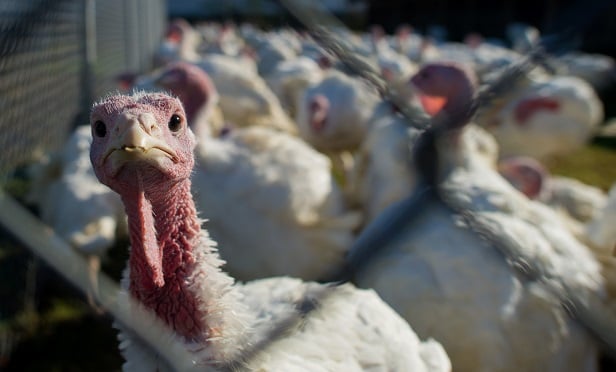 Behind the scenes of this year's turkey product salmonella outbreak, debate continues on how authorities treat salmonella and what protections should be given to the public. (Bloomberg)
Behind the scenes of this year's turkey product salmonella outbreak, debate continues on how authorities treat salmonella and what protections should be given to the public. (Bloomberg)
With Thanksgiving just days away, the drug-resistant salmonella outbreak in raw turkey products has now expanded nationwide, resulting in one death and dozens of hospitalizations.
Recommended For You
Want to continue reading?
Become a Free PropertyCasualty360 Digital Reader
Your access to unlimited PropertyCasualty360 content isn’t changing.
Once you are an ALM digital member, you’ll receive:
- Breaking insurance news and analysis, on-site and via our newsletters and custom alerts
- Weekly Insurance Speak podcast featuring exclusive interviews with industry leaders
- Educational webcasts, white papers, and ebooks from industry thought leaders
- Critical converage of the employee benefits and financial advisory markets on our other ALM sites, BenefitsPRO and ThinkAdvisor
Already have an account? Sign In Now
© 2025 ALM Global, LLC, All Rights Reserved. Request academic re-use from www.copyright.com. All other uses, submit a request to [email protected]. For more information visit Asset & Logo Licensing.








